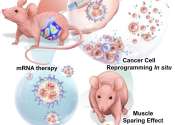Gut bacteria found in wild wolves may be key to improving domestic dogs' health
Gut microbes found in wild wolves may be the key to alleviating a debilitating gastrointestinal condition common to domestic dogs, according to a study led by researchers at Oregon State University—Cascades.









